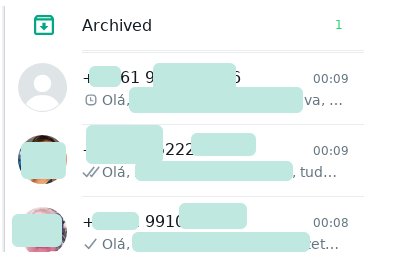🚨 WAHA Security Alert
April 29, 2025 in Releases by devlikeapro3 minutes

🚨 WAHA Security Alert
We’ve recently seen a disturbing trend: users running WAHA with the API publicly exposed and without any form of protection.
Unfortunately, a few of them learned the hard way — their sessions were compromised, and their accounts got hacked.
❗ What Happened?
Some WAHA users deployed the API and made it accessible over the internet — but forgot to secure it. No API keys. No reverse proxies. Just a raw, open API ready-to-take commands from anyone who knew the endpoint.
It didn’t take long for bots and malicious actors to find those ports. Once they did — they used sessions, hijacked WhatsApp accounts, sent spam messages.

⚠️ This IS NOT just a theoretical risk. We had multiple cases this month alone. If your API is open, you are exposed.
👥 Who Is Affected?
This vulnerability affects anyone who is running WAHA or WAHA Plus and:
- Exposes the
/apiport directly to the internet, - Has no API key set in the
.envor Docker environment, - Don’t use HTTPS or any firewall/reverse proxy to restrict access.
This includes Docker deployments, VPS installs, even cloud setups that skip security steps.
🛠️ How to Fix It
Do not expose WhatsApp API on public networks!
- Use at least 64 symbols random string as
WHATSAPP_API_KEYstring that contains letters (a-z, A-Z) and numbers (1-9) - Read more 🔒 Security
Here’s how you can immediately protect your setup:
- Use API Key Authentication
WAHA requires an
api_keyfor all endpoints. Make sure you set and enforce it in your environment:
WHATSAPP_API_KEY=your_strong_key_hereDon’t expose your API directly to the internet! Keep it behind:
- A VPN
- A reverse proxy with authentication
- A firewall that limits access to trusted IPs
Enable HTTPS Use Let’s Encrypt or self-signed certificates to ensure traffic is encrypted.
❓ FAQ
🔒 Changing ports will not save you!
Obscuring your API behind a “random” port like 39823? Doesn’t matter. Bots scan all ports. If it’s open and unprotected — they’ll find it.
🧱 I don’t have WAHA Plus, how can I still be secure?
You still have options:
Do not expose the API port to the internet Only bind the container to
localhostor your internal network.Use third-party software to protect your API Tools like Ngrok can tunnel securely, and you can wrap requests with basic auth or tokens.
Use a firewall to restrict access Restrict incoming traffic to your trusted IPs only. Tools like
ufworiptablescan help with that.
🚨 Final Word
Leaving your API exposed is like leaving your house door wide open with a sign saying “not using locks.” WAHA gives you the tools to be secure. Use them.
Stay safe 🛡️